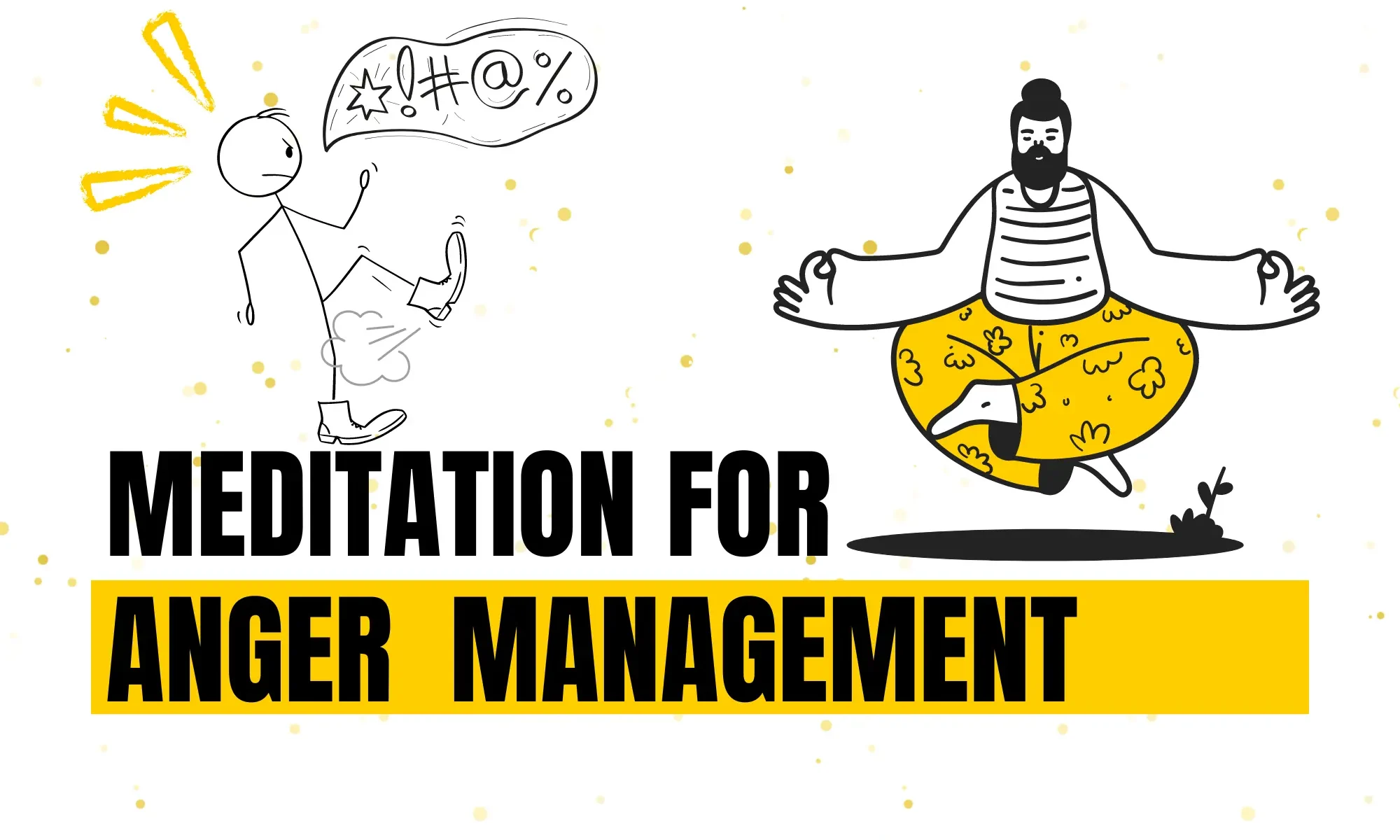Introduction
Anger is a natural emotion, but when it becomes uncontrollable, it can harm relationships, mental well-being, and physical health. Practicing meditation for anger management is one of the best ways to cultivate patience, self-awareness, and emotional balance. Meditation helps reduce stress, improves focus, and allows individuals to respond to anger more calmly. In this guide, we will explore seven meditation techniques for anger management that can help you regain inner peace.

If you need professional support, consulting the best psychiatrist in Delhi can provide valuable insights and personalized strategies for Anger Management. Consider Visiting:
1. Mindfulness Meditation for Anger Management
Mindfulness meditation is a powerful practice that encourages individuals to focus on the present moment. It helps in recognizing anger triggers and responding calmly instead of reacting impulsively.
How to Practice:
- Sit in a quiet space and close your eyes.
- Take deep breaths and focus on your inhalation and exhalation.
- Observe your thoughts and emotions without judgment.
- If feelings of anger arise, acknowledge them and let them pass without reacting.
Benefits:
- Enhances self-awareness
- Reduces emotional reactivity
- Promotes mental clarity
2. Deep Breathing Meditation for Anger Management
Deep breathing is a simple yet highly effective meditation for anger management. It activates the body’s relaxation response and helps calm the mind.
How to Practice:
- Inhale deeply through your nose for four seconds.
- Hold your breath for four seconds.
- Exhale slowly through your mouth for six seconds.
- Repeat this process for several minutes.
Benefits:
- Lowers stress levels
- Reduces emotional outbursts
- Helps in mental relaxation
For more breathing techniques, check Centers for Disease Control and Prevention (CDC).
3. Loving-Kindness Meditation for Anger Reduction
Loving-kindness meditation (Metta meditation) promotes compassion and reduces negative emotions like anger and resentment.
How to Practice:
Sit comfortably and close your eyes.
Take deep breaths and repeat positive affirmations like, “May I be happy, may I be free from anger, may I be peaceful.”
Extend these positive wishes to others, including those who trigger your anger.
Benefits:
- Encourages forgiveness
- Reduces frustration
- Improves emotional resilience

4. Guided Meditation for Anger Management
Guided meditation provides structured relaxation techniques that help in meditation for anger management. It involves listening to a recorded session where an instructor provides calming guidance.
How to Practice:
- Find a quiet place and put on a guided meditation session.
- Follow the instructor’s voice as they take you through a relaxation process.
- Visualize peace and let go of anger.
Benefits:
- Offers structured relaxation
- Helps in emotional regulation
- Reduces stress and anxiety
5. Body Scan Meditation to Release Anger
Body scan meditation helps release tension stored in the body due to anger and stress.
How to Practice:
Lie down or sit comfortably.
Close your eyes and take deep breaths.
Focus on different parts of your body, starting from your head down to your toes.
Consciously relax each body part.
Benefits:
6. Mantra Meditation for Anger Management
Mantra meditation involves repeating calming words or phrases to cultivate peace and prevent anger from escalating.
How to Practice:
Choose a calming word or phrase like “I am calm” or “Peace”.
Sit in a quiet place and close your eyes.
Repeat the mantra while focusing on your breath.
Benefits:
7. Visualization Meditation for Anger Relief
Visualization meditation helps the mind shift from frustration to calmness by imagining peaceful scenes.
How to Practice:
Close your eyes and take deep breaths.
Picture yourself in a peaceful location like a beach or a forest.
Imagine yourself responding calmly in anger-provoking situations.
Benefits:
Trains the mind for positive reactions
Lowers stress and anxiety
Enhances emotional control

Conclusion
Practicing meditation for anger management can be a life-changing habit. These seven meditation techniques for anger control help in reducing emotional outbursts, improving self-awareness, and fostering a peaceful mindset. Incorporating meditation into your daily routine can lead to long-term emotional well-being and healthier relationships.
For more information on managing emotions, visit the National Institute of Mental Health (NIMH).

